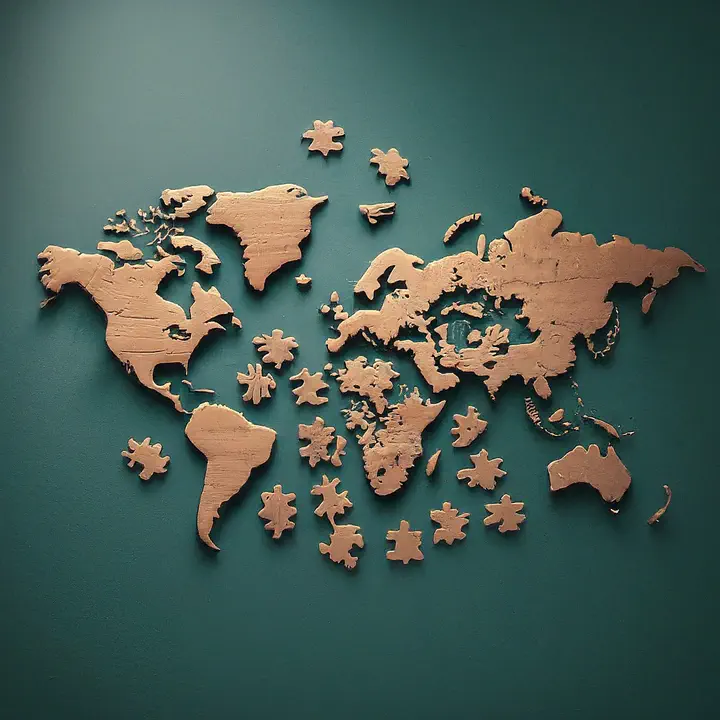Geopolitical Expertise: The Vital Skill for Supply Chain Leaders in a Shifting World 🌎

Introduction
The era of predictable supply chains centered solely around efficiency and optimization has evolved. Geopolitics now plays a starring role, as trade conflicts, regional clashes, and power struggles reshape the global landscape. Forward-thinking companies understand that supply chain leaders can’t rely only on logistical expertise – they need geopolitical intelligence, too. It’s a trend mirrored by my recent talk for ASCM Atlanta where I explored proactive risk management plans for supply chain disruption.
Firms like McKinsey & Company and Boston Consulting Group (BCG) now offer geopolitical risk consulting specifically geared towards supply chains. Other organizations have created dedicated roles as “geopolitical risk managers” to anticipate and mitigate these complex challenges.
The goal is no longer just smooth flow—it’s the resilience to maintain flow even amidst international turbulence.
The Supply Chain Implications of Geopolitics
Global supply chains are complex networks connecting resources, materials, talent, and markets across the world. These intricate network functions work optimally when there’s free, unrestricted flow and the period of unrestricted flow is over (at least for now). Geopolitical events create knots in the web or threaten to sever ties completely. For example:
- Trade Wars and Tariffs: Escalating tensions between major powers like the US and China often take the form of tariffs. These taxes on imported goods increase costs and add volatility, pushing companies to source goods elsewhere or restructure their supply chains.
- Access to Raw Materials: Many critical raw materials come from politically unstable regions or countries locked in disputes. For instance, the global chip shortage highlights the risk of depending heavily on Taiwan for materials vital to manufacturing.
- Transportation Disruptions: Conflicts can significantly disrupt air and sea transport routes, forcing long, costly detours. The current blockage of the Red Sea shows the immense disruption even a temporary closure of a chokepoint can cause.
Specific Geopolitical Examples: Impacts on Supply Chains
- Red Sea/Yemen Crisis: The Houthi rebels in Yemen, backed by Iran, threaten crucial maritime routes in the Red Sea. This creates a high-risk region for shipping and potentially restricts oil flows, driving up energy prices globally.
- Israel-Hamas Conflicts: Conflicts between Israel and Hamas periodically destabilize parts of the Middle East. This raises risks for manufacturers based in the region and potentially disrupts shipping and logistics between Europe, Asia, and beyond.
- Ukraine-Russia War: Aside from its devastating humanitarian toll, Russia’s invasion of Ukraine has massively disrupted supply chains and markets. Sanctions have created major limitations on sourcing, price escalation has hit numerous resources, and global supply chains have had to scramble to adapt.
- Nearshoring Trend: Many companies, concerned about risks inherent in distant countries, are bringing operations or sources of supply closer to home. This offers more control and security but also carries potential price considerations.
Conclusion: Geopolitical Literacy for Supply Chain Leaders
As global connections grow more complex, it’s more important than ever for supply chain professionals to have geopolitical literacy at their fingertips. This doesn’t just mean following world news and headlines throughout the day. Particularly, it entails:
- Risk Mapping: Identify key vulnerabilities in your supply chain based on potential geopolitical conflicts and scenarios.
- Proactive Scenario Planning: Prepare for various situations, even ones less probable. Build alternate supplier strategies, and transportation routes, and consider stockpiling critical items in different locations.
- Collaboration and Communication: Foster strong relationships with suppliers and partners in diverse regions. Transparency and knowledge sharing will build resilience against disruption.
In today’s interconnected yet increasingly fractured world, supply chain success is about being politically astute, adaptable, and capable of navigating a dynamically changing global landscape. The next set of leaders will be more geopolitically aware than the leaders of the past and present.
References
https://www.bcg.com/capabilities/international-business/insights
#supplychain #geopolitics #leadershipskills #riskmanagement #strategicplanning #supplychainresilience #supplychaindisruption